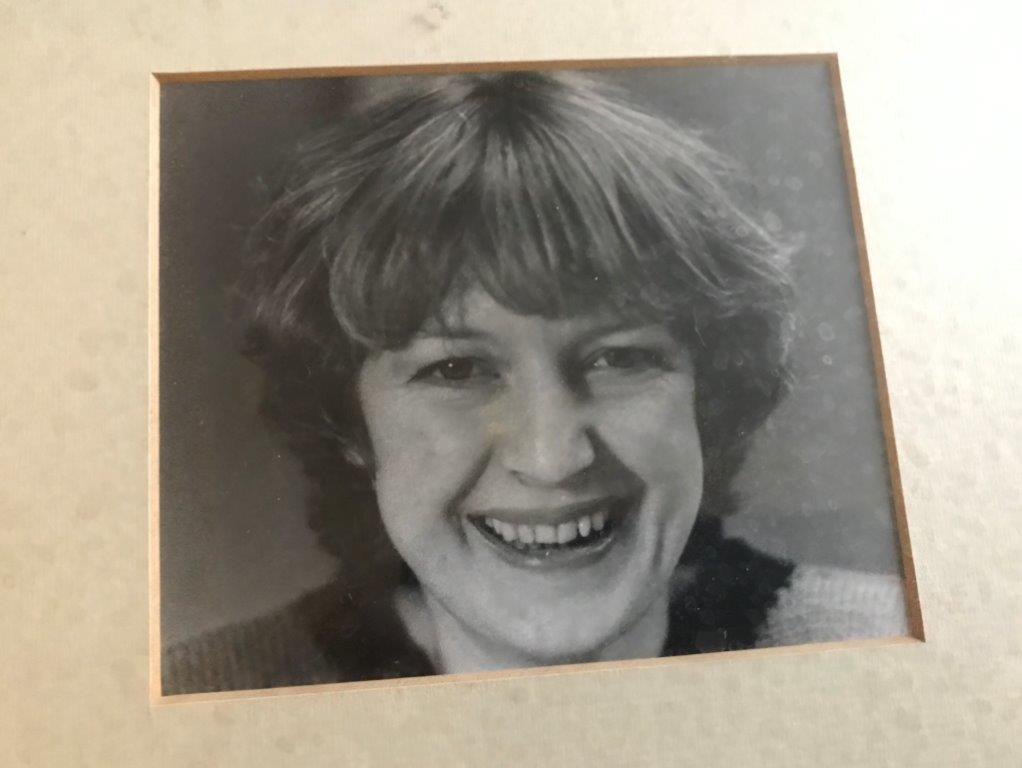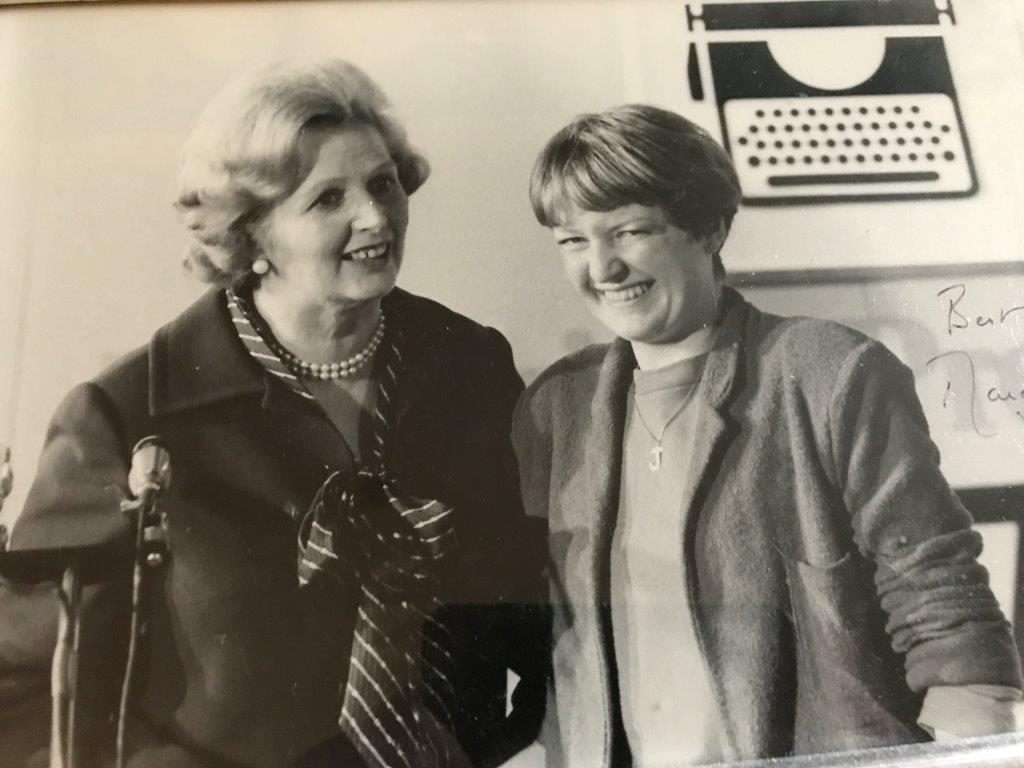The reluctant trailblazer: Julie Welch reflects on being Fleet Street’s first female football reporter
On August 25, 1973, two concurrent events occurred. Not only did Tottenham Hotspur lose 1-0 away to Coventry City in the first game of the Division One season, but Julie Welch became Fleet Street’s first female football reporter as she was sat in the old Highfield Road press box covering the game for the Observer.
Julie had been a secretary in the Observer’s sports department for almost two years at this point when she seized her opportunity with both hands and asked then editor Ron Atkin if she could make the trip up to Coventry.
“The football season was approaching and I was sitting in the pub with Ron and Arthur [Hopcraft] at the time,” Julie explained. “Arthur had one of his ‘drama queen’ announcements that he couldn’t bear to write about football anymore. I thought here’s my chance as they’d be short a football reporter.
“I turned to Ron and said, ‘why don’t you send me?’ Much to my surprise, Ron said he’d thought about that and that’s how I went to Coventry vs Spurs.”
While there still aren’t enough women in press boxes around the country, this was 46 years ago and women in the sports media were completely unheard of. Julie recalled that another former colleague of hers — Peter Corrigan, the Observer’s Chief Football Writer at the time — had to advise the members of the press at Highfield Road that day that she was going to be coming.
She said: “He was chummy with the guy that ran the press operation at Coventry and he warned them in advance that a ‘woman was going to invade,’ so they looked after me. There was a microsecond of silence when I walked in the press room and everyone pretended they hadn’t noticed I had tits and lipstick and it was really just lovely.”
We agreed that the crux of this story had two edges to the sword. On the on hand, Julie recalls how encouraging she found it that those there that day were “polite and pleasant,” but the other side of the coin is that it’s a damning indictment on the media in 1973 that somebody felt it necessary to send an advance warning about her arrival.

One particular incident did resonate, though, as the moment in which the enormity of what she was doing dawned on her. “The weird thing was that when I went back to the press room to phone in my copy, I was trying to talk in a really deep voice and I put the phone down after delivering the report and there was absolute silence,” Julie said. “I realised that everyone had been listening to me.”
She continued: “It was really strange. I didn’t realise what a big deal it would be.” For Julie, this was just a logical next step in her promising career.
Since the age of about six, according to Julie, she knew she wanted to be a writer. She won the Daily Telegraph Young Magazine Writer of the Year award in her final year of university and had written bits and pieces for Creem and women’s magazines by the time she began working at the Observer. But football, and sport generally, had always stirred her the most. She was utterly transfixed by it. Writing about it, therefore, made sense.
“I thought maybe there’d be a fuss for a couple of weeks, then it would die down, but it went on and on. I was being singled out as the woman in the press box,” she said.
“I did find that the people who were worst about it were men of my age. Fleet Street was such a cut-throat, rivalrous business anyway, so now they weren’t only being threatened by their male contemporaries, but there was this woman who was getting a lot of attention just for being female.”
This was what was bothering Julie, all the attention. What she didn’t realise at the time was that she’d become a trailblazer, a reputation that has since stuck like a sweaty t-shirt on a hot summer’s day. It’s not a label she’s particularly enjoyed having.
“I feel ambivalent about the trailblazer thing because I’m being singled out,” Julie said. “I was very matter-of-fact about it. That was my job. It was nice to be the first woman, but I was pleased when Sue Mott came along in the late 1970s for the Sunday Times just to be not the only one. I thought she wasn’t a trailblazer, but a professional journalist in sport. There were enough women coming through for me not to feel like the trailblazer.
“Vikki Orvice, who died recently, was still being singled out. Why not just celebrate and mourn the death of a great sportswriter? Why do we still have to be trailblazers? I feel a frustration about it. It’s an indictment on the industry that we’re still viewed as trailblazers.”

While still a small presence in the sports media – just over 10% according to a Women in Sport report from 2018 – female representation is increasing and women’s sport is burgeoning in popularity.
For instance, Atletico Madrid Women’s 2-0 defeat to Barcelona Women drew a record crowd of nearly 61,000 and an Italian record crowd of 39,000 watched Juventus Women’s first match at the Allianz Arena — a 1-0 victory over Fiorentina Women.
The Telegraph, too, have just unveiled Anna Kessel as their women’s sport editor and Alex Scott continues to outshine the likes of Graeme Souness with consistently excellent analysis and insight as a Sky Sports pundit. Similarly, Barclays recently announced their sponsorship of the Women’s Super League, but this is merely a snapshot.
“It’s just a question of changing mindsets and I’m so glad that there are now so many women who feel they can go into sport and make a career out of it,” Julie said. “It will change, I feel very optimistic about it. We have real fighters now who sail through and don’t let it get to them.
“I think there’s still growth taking place. Because more attention is being given to women in sport, girls are less self-conscious about being interested in sport. It will become more natural to go into the industry as time goes on because there’s greater coverage and greater respect.
“There are a lot of dinosaurs — quite noisy dinosaurs — still around. The men who object to women in sport are either dinosaurs or losers. Sport is for everybody. It’s part of life, a natural expression of being human.”
With women’s sport and its coverage growing exponentially, alongside many prominent females in the media, Julie won’t be a trailblazer for much longer.
Featured photograph/Julie Welch